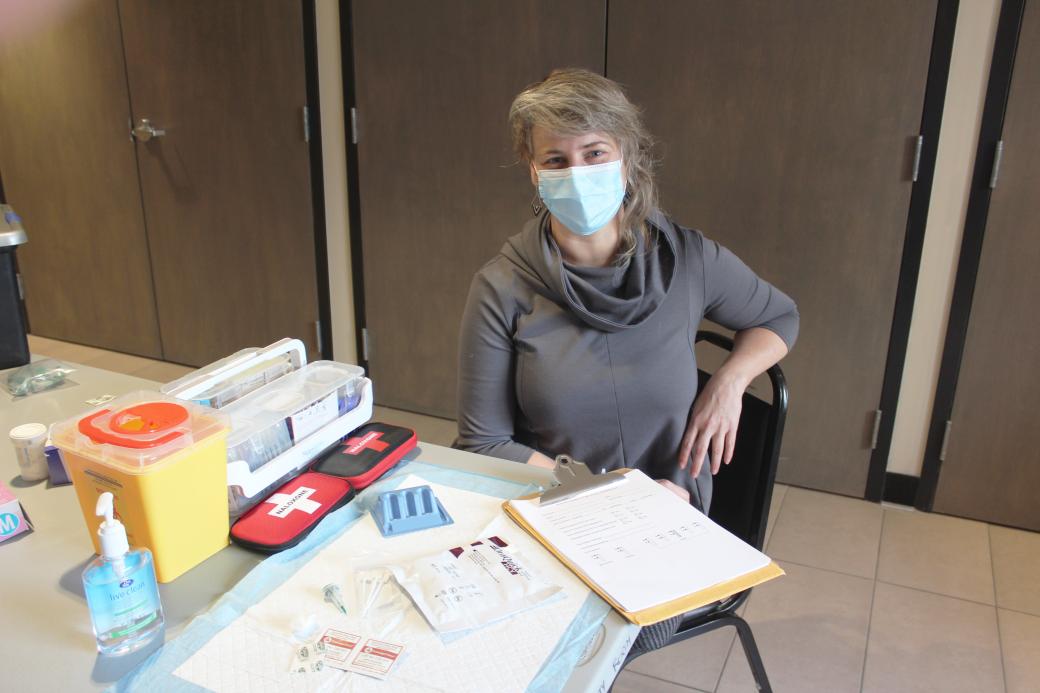Toronto Community Hepatitis C program
Providing TCHC tenants with treatment, compassion, and support.
When we met Katie Connolly and her team from the South Riverdale Community Health Centre’s Toronto Community Hepatitis C Program (TCHCP), we admittedly knew very little about the disease.
We were able to spend an hour at 15 Scadding Avenue with her team, including a nurse and three former clients who are now community support and health workers. We left with a greater understanding of the Hepatitis C virus and how it’s contracted, as well as the bigger impacts that clients face. This includes dealing with public perceptions and their effect on someone’s mental, social, and physical wellbeing.
TCHCP is a community-based, client-centered, collaborative care model that gives support, education, and treatment to people living with, or otherwise at risk of getting, a Hepatitis C infection. The virus itself is an infection that causes liver inflammation and can lead to serious liver damage. Over the last decade, medical advances and simpler treatment options have meant that many who are infected have fully recovered. “We’re now at a place where Hepatitis C is an entirely curable virus,” said Katie. “Not only that, but Canada has signed onto the World Health Organization’s global target to eliminate Hepatitis C as a public health risk by 2030.”
One of the largest barriers in seeking help with Hepatitis C is the stigma attached. Many people with Hepatitis C share that they have experienced loneliness, shame, and embarrassment because of common misunderstandings around the virus. You can’t get Hepatitis C from hugging, kissing, or sharing a glass with someone. It can only pass from person to person through direct contact with blood that’s carrying the virus. As well, Katie explained, Hepatitis C is most commonly asymptomatic, “so someone will not experience side effects from the virus until it has progressed. You can have Hepatitis C for 20 to 30 years and not have specific symptoms.”

Hepatitis C Treatment Nurse Bernadette Lettner is ready to receive patients.
The TCHCP team works hard to create a comfortable, safe space for clients to come in for treatment and attend weekly support meetings. The team’s main goal is to create a welcoming, non-judgmental environment for clients to get treatment in a manner that works for them. Bernadette Lettner, a nurse with TCHCP, said that “if someone is not comfortable with booked appointments, we will allow drop-ins. If they are uncomfortable with getting medication from pharmacies, we deliver it to their homes.” She stressed, “we need to get into communities and let people know that testing and treatment is available. Connecting people with rapid treatment is vital because earlier treatment means less damage to people.”
TCHCP was developed in partnership with people who have Hepatitis C. A TCHCP community support worker, and former client, recalled the time when he walked into a drop-in session. “I found out that the groups were run by people that all went through the program. It made the experience so much better because we can relate to one another and there was a lot of great information sharing.”
The TCHCP team believes strongly in a holistic approach to treatment. They give mental health counselling, employment assistance, housing support, and workshops on financial literacy. As Doug Belanger, a former client, stated, “I stuck with the program. I got housed, I got a mental health counselor, a psychotherapist, and finally started working through my trauma. And here I am today, working with a great organization and giving back to the community, making sure that folks that we treat are not being judged or stigmatized.”
Now employed as a TCHCP community health worker, Doug said he’s happy to share his experiences with those who are new to the program. “When you explain that you went through the program to somebody, it makes them feel like you know what you are talking about. It eases their mind because you can say I had Hepatitis C, and I am still here.”
For more information
To find out more about Hepatitis C testing and treatment options, call 647-627-5287, or visit the TCHCP website:
TCHCP website
